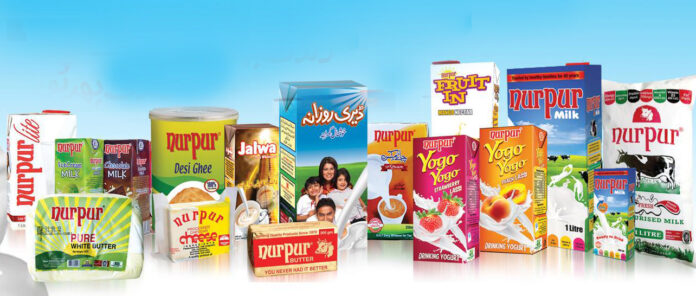Fauji Foundation: the name instantly conjures up some of Pakistan’s most successful business (indeed, much of this week’s issue covers what the conglomerate has been up to). One can look at Fauji Fertilizer Bin Qasim Ltd, or Askari Bank; even Fauji Cereals commands 70% of the breakfast cereal market.
But every parent company has that one problem child, and Fauji is no exception. Try as it might, and no matter how much money it throws at the problem, Fauji Foods cannot get its act together. On January 25, the Fauji Foods released its financials for the year ending December 2020. Despite some revenue growth, the losses at the company continued – now, for the ninth year running.
How did it get to this point? Some quick history: the Fauji Foundation was founded in 1954 as a charitable trust, and was initially designed to help provide welfare for the Pakistan Army’s retired soldiers as well as their dependents. By 2020, this “trust” now runs 21 associated companies, and three fully owned companies, in industries as varied as fertilisers, cement, power, oil, gas, food, grain, and even banking (Askari Bank). Fauji Foundation owns 44.4% of Fauji Fertilizers, which in turn owns 49.9% of Fauji Fertilizer Bin Qasim (FFBL), which in turn owns 50.6% of Fauji Foods. To bring it full circle, Fauji Foundation also owns 12.8% of Fauji Foods.
Despite being nestled deep within the Fauji family, Fauji Foods actually began its life in 1966, as part of the Noon Group of companies. Their main arm was the food arm, also known as Nurpur, the beloved and well known dairy brand that produced milk, butter, cheese, desi ghee, honey, and jam.
Brand recognition aside, Nurpur did abysmally. Between 2006 and 2011, the company did not crack a net income above Rs45 million. And between 2012 and 2015, the company posted consecutive losses (loss of Rs128 million in 2013, and loss of Rs142 million in 2014). At the time, company management blamed rising costs, and a lack of financial support. Competitors like Nestle and Engro were also expanding rapidly during this time period and closing in on the space.
Enter the Fauji Group, who bought the company in 2015, clearly thinking they could do a better job. And, initially, they tried quite hard, throwing money at the problem as a solution. According to the company’s annual report, the management spent Rs7,260 million between 2015 and 2018 modernising the existing infrastructure. As of 2020, FFBL’s financial liabilities that arise from its ownership of Fauji Foods stands at a hefty Rs9.5 billion.
Yet, if anything, matter only got worse. The company has made a loss every single year since 2015 (an astonishing loss of Rs2,849 million in 2018, and shocking loss of Rs5,789 million in 2019). According to its most recent annual report of 2019, Fauji’s current liabilities exceeded its current assets by Rs8,789 million in 2019, while its total debt amounted to Rs13,638 million.
The only thing positive about the year 2020 is that it is not like the year before it – marginally. In 2020, revenue stood at Rs7,373 million, which is greater than 2019’s Rs5,745 million, and comparable to 2017 and 2018 revenue levels of around the Rs7,000 million mark. This is how, despite costs of sales increasing in 2020, the company still managed a positive gross profit. But that jump in revenue was not enough to overcome other costs.
Yes, administrative costs and distribution costs were somewhat lower; but finance costs and other expenses actually increased, while ‘other income’ stayed stagnant. That is how the companies’ net income in 2020 stood at Rs3,058 million – the second biggest loss after 2019.
So, what happened? As Profit has previously pointed out, Fauji always had an uphill battle when it came to its foray into fast-moving consumer goods (FMCGs). Fauji Foods would require the fertiliser experts – more attuned to the industrial engineering challenges of manufacturing fertilisers – to suddenly learn an entirely new type of business – one focused on consumer preferences – essentially from scratch.
Analysts had previously pointed out that simply trying to copy Engro Foods, for example, will not work. FMCGs are predicated on quick decision making, and relatively quick marketing strategies to accommodate changing trends and stay ahead of the competition. And yet the Fauji Foundation has a culture where decisions took time to be approved and went through levels of bureaucracy. Despite recent aggressive hiring from the private sector, that mindset is hard to change.
When throwing money did not seem to work, Fauji tried another tactic: sell the business. In 2018, the Chinese company, Inner Mongolia Yili Industrial Group, wanted to buy a 51% stake in Fauji Foods, but withdrew the offer in 2019. Turns out, Fauji Foods has so many problems that even a well-capitalised state-owned company from China did not want to take it on.
That means Fauji Group will have to inject in yet more money and take on more financial risk. It has gotten to a point where the bailouts may begin to threaten the financial stability of the parent companies. But if no one wants to take the problem off their hands, Fauji is stuck with their problem child for now. Expect more financial headaches in the future. How much longer is hard to say, though a full recovery is also possible.


























The management is working hard and InshahAllah will bring betterment.